Synesthesia
Pseudo-synesthete authors
Umi kurete
kamo no koe
honoka ni shiroshi.
The sea darkens –
the wild duck's call
is faintly white.
(as translated by Hass 1994)
Kane kiete
Hana no ka wa tsku
Yube kana
As the bell tone fades
Blossom scents take up the ringing
Evening shade
(as translated by Ueda 1967)
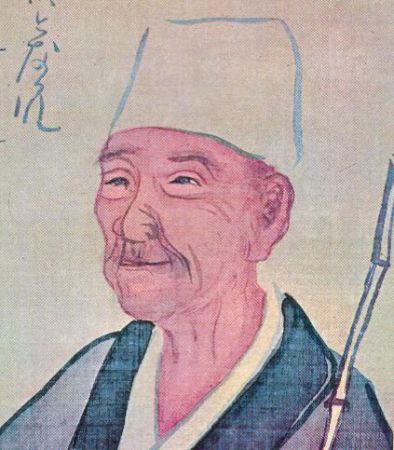
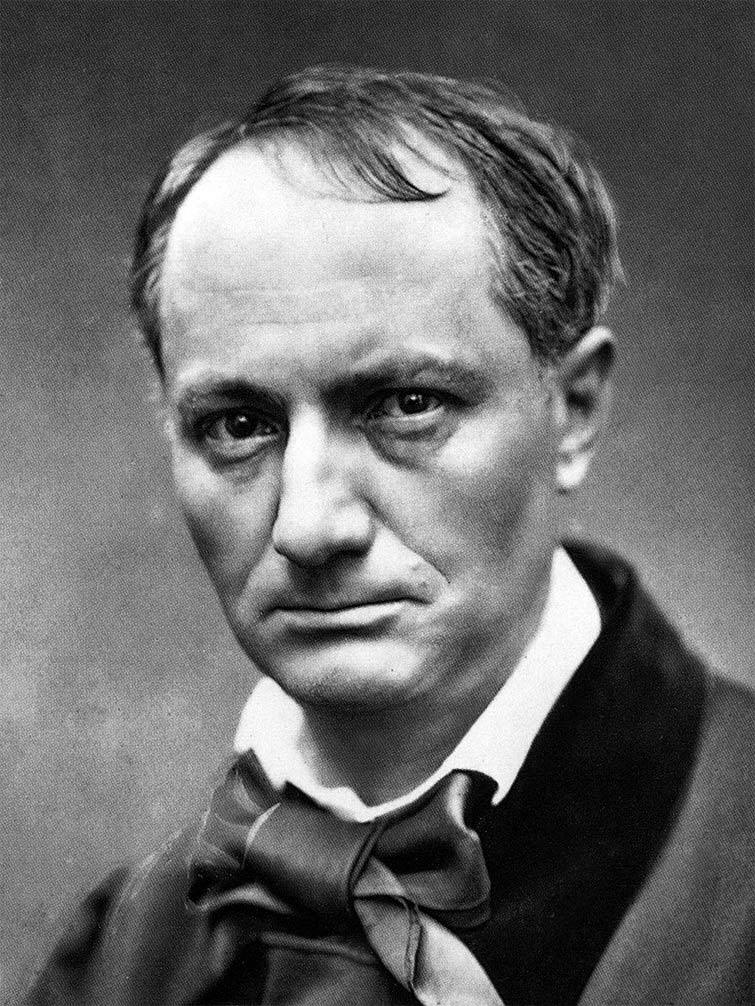
Baudelaire, Charles
Correspondances
La Nature est un temple où de vivants piliers
Laissent parfois sortir de confuses paroles;
L'homme y passe à travers des forêts de symboles
Qui l'observent avec des regards familiers.
Comme de longs échos qui de loin se confondent
Dans une ténébreuuse et profonde unité,
Vaste comme la nuit et comme la clarté,
Les parfums, les couleurs et les sons se répondent.
Il est des parfums frais comme des chairs d'enfants,
Doux comme les hautbois, verts comme les prairies,
Et d'autres, corrompus, piches et triomphants,
Ayant l'expansion des choses infinies,
Comme l'ambre, le musc, le benjoin et l'encens,
Qui chantent les transports de l'esprit et des sens.
Nature is a temple where living pillars
sometimes let forth confused words;
in it man goes through forests of symbols
which watch him with familiar looks.
Like long echoes which from a distance
mingle into a shadowy and deep unity,
as vast as night and light, perfumes,
colours and sounds reply to one another.
There are perfumes fresh as children's flesh,
sweet as oboes, green as meadows,
and others corrupt, rich and triumphant,
Sharing the capacity of expansion that infinite things have,
such as musk, balsam and incense,
which hymn the transports of the mind and the senses.
[From Cristopher Robinson, French Literature in the Nineteenth Century; New York: Barnes & Noble; 1978. Pp. 129-130.
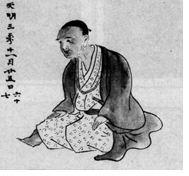
Suzushisa ya
Kane o hanaruru
Kane no koe.
Coolness –
the sound of the bell
as it leaves the bell.
(as translated by Hass 1994)
Old well,
a fish leaps –
dark sound.
(as translated by Hass 1994)
Kageroo ya
na mo shiranu mushi no
shiroki tobu.
Heat waves of spring;
An unknown insect
Is flying whitely.
(as translated by Blyth 1949)
The sound of a bell
struck off center
vanishes in haze.
(as translated by Hass 1994)
Chora (Japanese haiku poet)
Mushi horo-horo
kusa ni koboruru
neiro kana.
The sound-colour
Of insects pattering down
On the leaves.
(as translated by Blyth 1949)
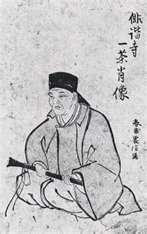
Uguisu ya
kiiro na koe de
oya wo yobu.
The young uguisu
Calls its parents
With a yellow voice.
(as translated by Blyth 1949)

Rimbaud, Arthur
Perhaps one of the most famous poems ever written with a synaesthetic theme is Rimbaud's "Voyelles":
A noir, E blanc, I rouge, U vert, O bleu: voyelles,
Je dirai quelque jour vos naissances latentes:
A, noir corset velu des mouches éclatantes
Qui bombinent autour des puanteurs cruelles,
Golfes d'ombre; E, candeurs des vapeurs et des tentes, Lances des glaciers fiers, rois blancs, frissons d'ombelles.
I, pourpres, sang craché, rire des lèvres belles
Dans la colère ou les pénitentes;
U, cycles, vibrements divins des mers virides,
Paix des pâtis semés d'animaux, paix des rides
Que l'alchimie imprime aux grands fronts studieux;
O, suprême Clairon plein des strideurs étranges,
Silences traversés des Mondes et des Anges:
-- O l'Oméga, rayon violet de Ses Yeux!
A black, E white, I red, U green, O blue --
I'll tell One day, you vowels, how you come to be and whence.
A, black, the glittering of flies that form a dense,
Velvety corset round some foul and cruel smell,
Gulf of dark shadow; E, the glaiers' insolence,
Steams, tents, white kings, the quiver of a flowery bell;
I, crimson, blood expectorated, laughs that well
From lovely lips in wrath or drunken pentinence;
U, cycles, the divine vibrations of the seas,
Peace of herd-dotted pastures or the wrinkled ease
That alchemy imprints upon the scholar's brow;
O, the last trumpet, loud with strangely strident brass,
The silences through which the Worlds and Angels pass:
-- O stands for Omega, His Eyes' deep violet glow!
(Translation by Norman Cameon, in Bernstein 1947: 237-238.)]
Rimbaud later (1873) admitted that he was not a synaesthete, and had made up the correspondences between vowels and colors:
"J'inventais la couleur des voyelles! -- A noir, E blanc, I rouge, O bleu, U vert. -- Je réglai la forme et le mouvement de chaque consonne, et, avec des rhythmes instinctifs, je me flattai d'inventer un verbe poétique accessible, un jour ou l'autre, à tous les sens. Je réservais la traduction" (quoted in Marks 1997/1975: 51).
"I invented the colors of the vowels! -- A black, E white, I red, O blue, U green. -- I settled on the form and the movement of each consonant, and, with instinctive rhythms, I flattered myself to invent an accessible poetic verb, one day or another, for all of the senses. I set up the translation [my translation from the French]
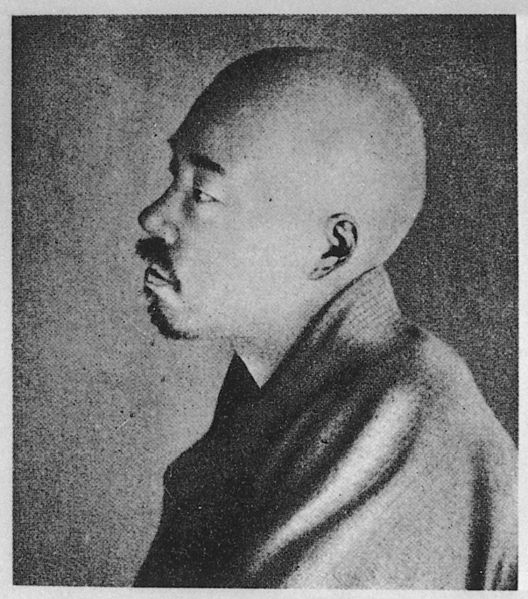
Koomori no
tobu oto kurashi
yabu no naka.
The sound of the bat
Flying in the thicket,
Is dark.
(as translated by Blyth 1949)
Kampan ni
arare no oto no
kurasa kana.
On the deck
The sound of the hail
Is dark.
(as translated by Blyth 1949)
This page last updated:5.July.2011